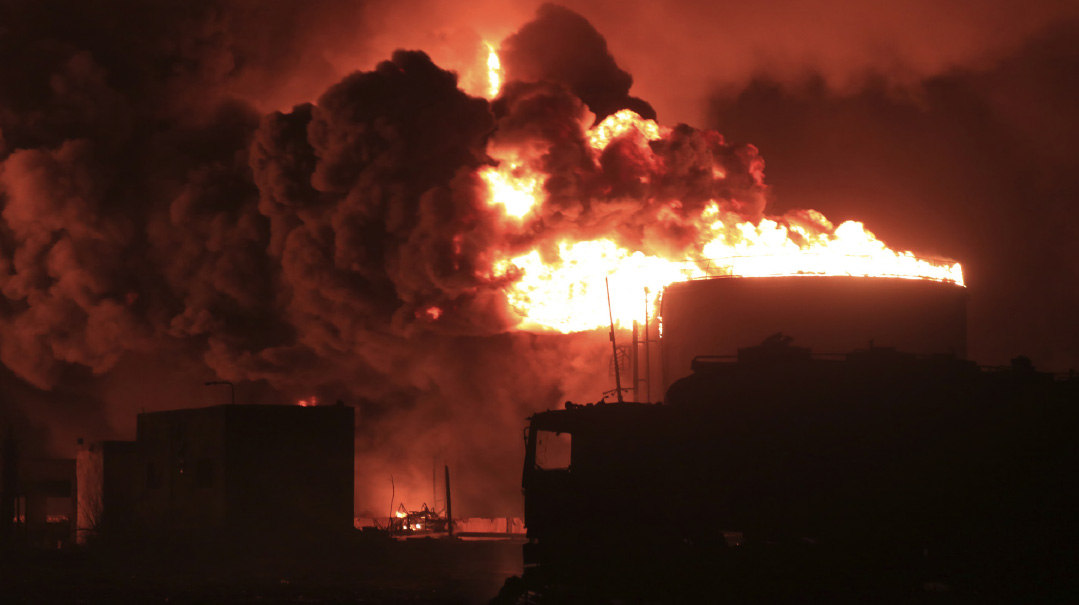The Dangers of Annexation

"I here announce my intention to impose Israeli sovereignty in the Jordan Valley and north of the Dead Sea immediately upon the formation of the next government"

"To the extent possible, I intend to impose Israeli sovereignty on the settlements and other crucial areas in full coordination with the United States,” announced Prime Minister Netanyahu last week. “But there is one region that can be annexed immediately after the elections, if I get a clear mandate to do so. I here announce my intention to impose Israeli sovereignty in the Jordan Valley and north of the Dead Sea immediately upon the formation of the next government. That is the eastern border of the State of Israel. Our safety belt to the east. It’s our eastern defensive wall, ensuring that we will never again be a country several kilometers across. The IDF needs to hold a strong position all along the Jordan Valley.”
Netanyahu’s statement was greeted with scorn by political rivals, who claimed it was a political stunt, and contempt by the United Nations, which said in a statement that the decision would have no binding “international legal effect.”
Undeterred, at the beginning of the next morning’s cabinet meeting, held in the Jordan Valley, the prime minister expanded his statement: “We will annex all the settlements in Judah and Samaria, within the settlement blocks and beyond them. These matters will be addressed in the deal of the century,” he said, referring to the peace deal crafted by the Trump administration.
However, the United States did not immediately back Netanyahu’s view. In fact, a senior figure in the White House clarified that the Trump administration had not changed its position regarding the West Bank. Instead, the spokesman said that when the administration publishes its peace plan after the Israeli elections, all parties will “reach a conclusion as to the best way forward.” Russia, along with France, Germany, Italy, Spain, and the United Kingdom, all strongly opposed the announcement.
Many accused Netanyahu of making a pledge he had no intention of fulfilling. He has never embraced annexation in the past, observers noted. In 2014, for instance, when Obama’s Secretary of State John Kerry was pushing his peace initiative, Netanyahu agreed to evacuate the settlements in the valley and retain only a security presence in the area. The only disagreement was over how long that presence would last.
Further, in 2011 Netanyahu stated in a speech to the Knesset that he would only insist on a military presence in the Jordan Valley. “A Palestinian state will only be established as part of a peace agreement that won’t compromise the security of Israel,” he said. “That state would have to be demilitarized, with security arrangements on the ground, including a long-term Israeli military presence along the Jordan River.”
The defense establishment in Israel was also taken by surprise by Netanyahu’s shift in direction. The prime minister informed them of his intentions only minutes in advance, and they protested strongly. Such an announcement should only be made after extensive debate, they argued, and only after concluding that the benefits outweigh the costs.
Critics raised a number of disaster scenarios. The most sensitive concerns neighboring Jordan, and the possibility that the move could embolden hardliners and lead to the toppling of King Abdullah and the cancellation of the peace treaty with Israel.
Amos Gilad, a former senior member of the defense establishment, told Mishpacha: “I didn’t take part in the conversation, but if that’s indeed what was said, they presented the standard security positions.” Gilad called the announcement a “security danger” that “threatens [Israel’s] existence. The border with Jordan is dangerous. We can’t allow things to deteriorate.”
(Originally featured in Mishpacha, Issue 778)
Oops! We could not locate your form.













